After 13 main installments, you'd think there would be little left for the Assassin's Creed franchise to draw inspiration from. However, after playing just over five hours of the upcoming Assassin's Creed Shadows at Ubisoft Quebec, I believe this franchise is just hitting its stride. It's definitely one of the 12 games we can’t wait to play in 2025.
Set in the world of feudal Japan, Shadows takes several detours from its myriad predecessors with the introduction of not one but two playable characters — and no, Desmond Miles is not one of them. It also does away with its oft-used split timeline story that interweaves the past and present, this time keeping things grounded in its version of 16th-century Japan.
Gory combat scenarios are juxtaposed with meditative moments of clarity and strategy, as two very different combat styles (and perspectives on Japanese culture) intermingle to create an Assassin's Creed experience for the ages. Notwithstanding its backlash, I'm still itching to eagle dive back into its lush countryside, wind-beaten pathways, and towering Shiro (castles), if only to unearth more of its incredibly compelling story.
And, of course, to breathe in more of this spellbinding setting.
One with the darkness
In Assassin's Creed Shadows, you're tasked with bringing several different warlords, arms dealers, and more reprehensible foes to a swift end. From these assassinations flows an interweaving story that sees you encroaching ever-slowly on your main target. That's where Shadows forgoes a normal quest log in favor of a bounty board with heads to lop off — but the scenarios around these targets might not always go as planned.
To complete these assassinations, you'll need an apt array of weaponry and gear. And boy, does Shadows deliver. Across its two protagonists, you'll find specific weapons that fit that particular character's mold, like Naoe's wakisashi, a blade that's much smaller than a conventional katana, or Yasuke's naginata, a polearm-like spear that's perfect for cutting down large swaths of foes around you.
Of course, Naoe also utilizes the titular assassin's hidden blade, which works perfectly well with her more nimble and agile playstyle. The blade is also a bit more important to the story than it initially might seem.
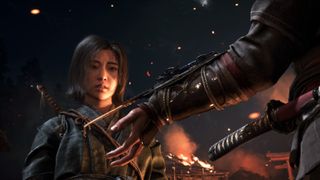
And it's not just armaments that make up the bulk of your assassin's tools as you'll also find other more interesting things to use in your many takedowns across Japan. One such tool (which was my personal favorite) is a small throwable bell that can be used to easily distract unsuspecting prey or move targets out of your way. Smoke bombs, kunai, shuriken, even bows and arrows, and so much more round out the rest of your toolbelt.
As someone who's not too keen on stealth in games, I found I truly enjoyed my experience playing as Naoe (the more stealthy and weaker of the two characters). I died a whole lot more (probably actually only) with Naoe as she isn't made to take on the entire shiro or inner tenshu (main keep) all by herself. She's meant to get in and get out, largely undetected. And, I've gotta say, she's extremely deadly when you know what you're doing.
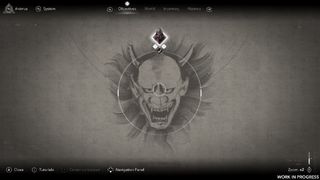
But so too is Yasuke, who towers over most enemies and makes light work of them with his menacing gear. While Naoe gets the stealthier arms, Yaskue takes on a far louder approach with heavier armor that limits his movement and broader (scarier) weapons, like a literal canon and massive kanabō (metal club) that bludgeons foes with visceral ferocity.
I've not had this much fun in an Assassin's Creed game for some time. The combat in this outing was an absolute blast and a major highlight of my experience, blending the parry mechanics of Sekiro with stealth elements seen in Metal Gear Solid. And it's not like these character archetypes lock you into any play style, as I saw one dev play a "stealthy Yasuke" run in a castle. It was totally bonkers.
Playing the silhouette in two parts
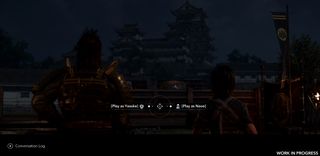
Unlike most of its predecessors, the story of Shadows is one of dual perspectives, but not in the way you might think. Instead of splicing its narrative into one of the past and one in the future, Shadows lets you step into the shoes of two very different 16th-century characters, each with their own interesting perspectives and relationships with Japan.
At the forefront of the AC Shadows conversation has been the game's use of an African protagonist, which many (particularly on the side of Japanese natives) aren't too keen on. But, if you look past all the noise, Yasuke adds so much weight to the story of Shadows — and it's not only due to his loose ties with the real world.
In the game, Yasuke is the perfect parallel to Naoe. Under Oda Nobunaga's service, the African samurai plunders and destroys the Iga Province, only to later switch sides and assist Naoe and her assassins across Japan. His intelligence and strong demeanor know no bounds, and he adds many interesting perspectives on Japanese culture.
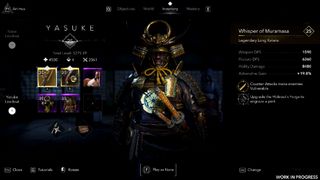
The one closest to the overarching Assassin's story and the one with, I would argue, the most compelling narrative thread, happens to be based on fiction. Fujibayashi Naoe is a short and lithely kunoichi (female ninja) who, following the invasion of her home by the reigning daimyo, Oda Nobunaga, rises to ensure and maintain the status of the 16th-century Japanese Brotherhood of Assassins.
I'm playing things slightly close to the chest as I don't want to give too much away, but from what I saw of its opening act, Shadows might be one of the most daring narratives out of Assassin's Creed yet. At least its prologue is quite compelling and makes you hunger for more.
I also played the game in Japanese with English subtitles. It has two modes upon startup, one of which can be toggled for either "Canon Mode," which strips the game of interesting dialogue choices to tell the "real story," as it were. The other toggle is for the Japanese playthrough, which I highly recommend as it adds Portuguese and Japanese speech over English.
You will have to contend with lip-syncing being somewhat of an issue, though that might be fixed by the time of release. In any case, it looked fine to me and gave the story a more solid base of immersion.
Ever-changing feudal Japan
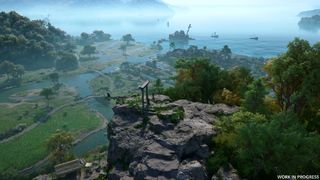
Assassin’s Creed remains one of the longest-running franchises in video game history, delving deep into the annals of history at each turn with fascinating fictional depictions of real-life characters. It’s set for another round, this time in late-1500s feudal Japan, wherein warlords reign supreme.
I must commend Ubisoft Quebec on building out not only a very time-period-specific Japan but one with such incredible beauty. The developers put a lot of emphasis on immersion and that flows quite nicely from its dynamic seasons system that changes over a short period of time, blanketing rooftops in white snow to tinging treetops with a light orange hue, and so much more in between.
It's not just in this ever-changing seasonal pattern (which can be toggled manually or automatically depending on certain events). You'll also find the weather itself can be both nuisance and benevolent in Assassin's Creed Shadows. Light snowfall and rain will help limit your character's detection, but footprints in the snow will alert guards (and so, too, dead bodies). Plus (owing to its namesake) you can also blow out candles and turn off lights to literally become one with the darkness when it's nighttime, thus utilizing your environment in new strategic ways.
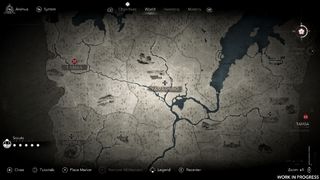
Ubisoft Quebec also built a true-to-form wind system, which shows itself best when riding through the countryside or zipping across rooftops. Seeing the wind sweep across the pathways or blow past pedestrians in a jōkamachi (castle town) really adds weight to the realness of what's going on around you. It's a subtle touch that makes all the difference.
And you're not just left up to your own devices, as in Shadows you'll have one main safehouse that will inevitably connect to a web of assorted smaller safehouses across the map. At your main safehouse, you'll be able to customize everything from a forge for upgrading weapons to even drinking quarters for all the side characters gathered throughout the game.
It mirrors similar concepts found in Fallout 4 with full safehouse customization and upgrading, as well as Dark Souls 2, which allowed you to gather supporters throughout the world and relocate them in Majula — or, in Assassin's Creed Shadows, your main safehouse. It's here where you can rest and recharge, upgrade weapons, start side quests with characters, meditate, and so much more.
An uphill battle
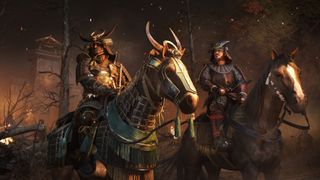
Assassin's Creed Shadows has a lot riding on it. Despite the praise from me and many of my peers, it will still fall victim to heavy scrutiny. Whether it be potential working conditions at Ubisoft Quebec, the use of an African character in a Japanese setting, or even just the bugs at launch, AC Shadows won't be without multifaceted levels of contention.
Not to mention that Shadows lands at a time ripe with similar samurai-esque experiences from the likes of the well-beloved Ghost of Tsushima, which is due for a sequel this year, to the forgotten hit in Rise of the Ronin. There are even elements of Sekiro baked into the gameplay, which is hard to ignore — even when the game stands largely on its own two feet.
While some fans might be done with Ubisoft, I'm not one of them. Assassin's Creed Shadows truly blew me away, even despite the slight jank. That aside, aided by a few more weeks of development time (plus what it's doing with the Animus Hub), AC Shadows could prove its mettle as an endearing take on Japanese history and another thoughtful, imaginative look into the past.
This preview is based on approximately 5-6 hours of play on a build supplied on-site by developer Ubisoft Quebec. A full, scored review of Assassin's Creed Shadows will follow on March 20, 2025.
More from Tom's Guide
- The best gaming PCs in 2025
- I’m finally giving handheld gaming PCs a chance this year
- This RTX 4070 desktop is currently discounted $600
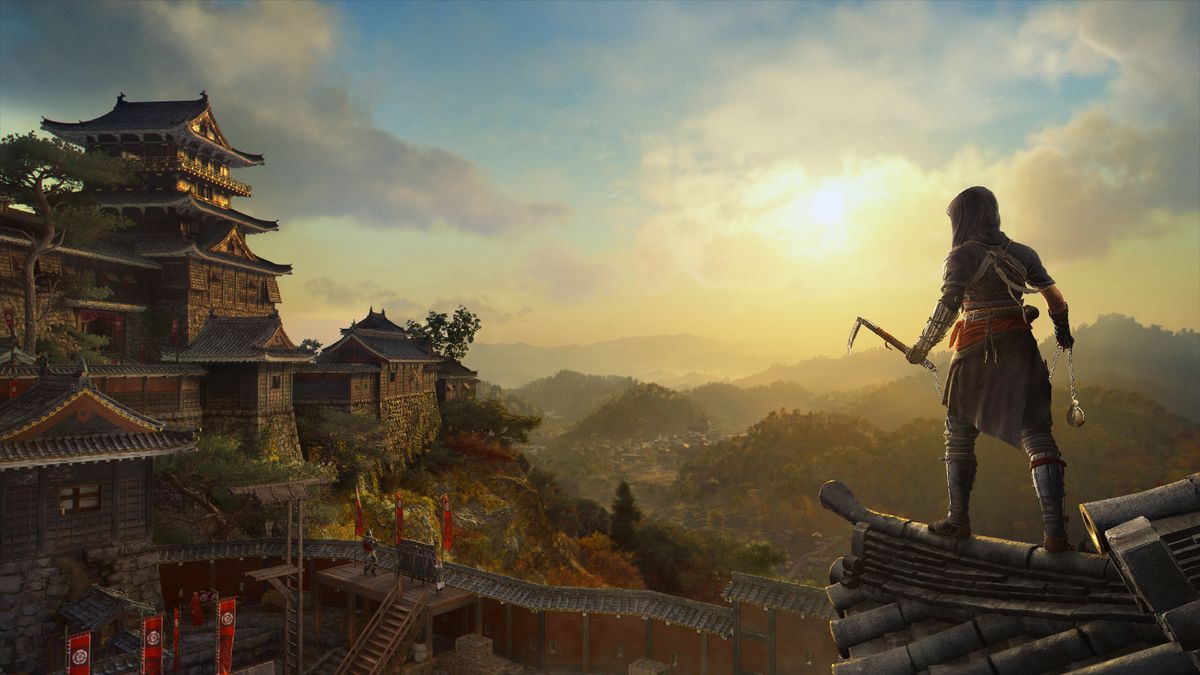







![LinkedIn Shares Data on In-Demand Skills for Marketers [Infographic]](https://imgproxy.divecdn.com/zMbngFHDMAQdOuk7-FK5eSqQ-bYj9Kyqki-xmPgH4I8/g:ce/rs:fit:770:435/Z3M6Ly9kaXZlc2l0ZS1zdG9yYWdlL2RpdmVpbWFnZS9saW5rZWRpbl9mYWxsX2pvYnNfb3V0bG9vazIucG5n.webp)












 English (US) ·
English (US) ·